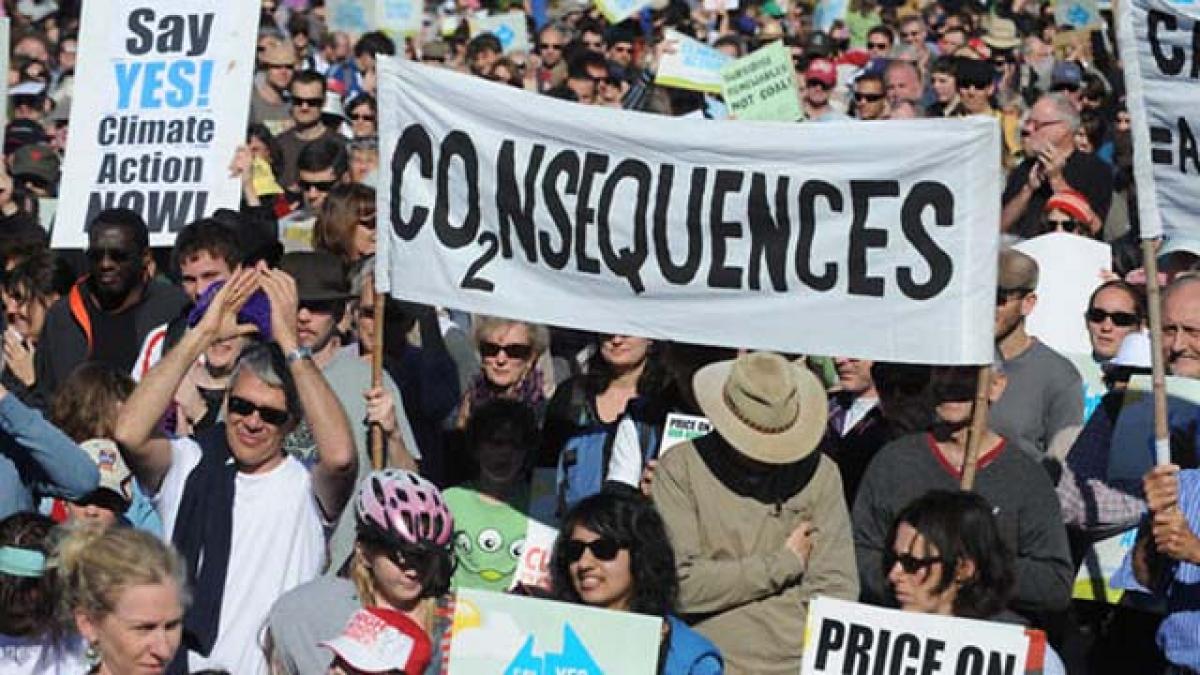Live
- Demand for TTD calendars, diaries sees a surge
- A pathway to sustainable peace
- Act Decisively On Microplastics
- Entrepreneurs exhorted to grab opportunities, grow globally
- Do celebrities think they are above the law?
- Lokesh fiat on MSME applications
- CM sets administrative goals at Collectors’ Conference
- ADB okays ₹8K cr to develop Amaravati
- Pushpa 2 Hits ₹1000 Crore in 6 Days: How It Compares to Other Top Indian Films
- NASA Tracks Five Giant Asteroids on Close Approach to Earth Today
Just In

Climate change talks turn complex, drag on. Except for the quiet perennial flow of waters in the Rhine every ambience of the city of Bonn has undergone a change over the last two decades.
The Kyoto Protocol of 1997 will come to an end in 2015 without developed countries achieving its goal of reducing the GHGs by five per cent from its 1990 levels. The emissions instead have now been nearly 45 per cent higher. An agreement has to be reached by December 2015
Except for the quiet perennial flow of waters in the Rhine every ambience of the city of Bonn has undergone a change over the last two decades. A smaller office of Secretariat of the United Nations Framework on Climate Change (UNFCCC) which began functioning on banks of the Rhine, while coordinating the global efforts to reduce the emissions of Green House Gases (GHGs), has now been expanded to include a multi-storeyed building and is a part of UN Complex. To say that the climate negotiations have become more and more 'complex' is underwhelming.
.jpg)
The intricate titles of the global climate meetings concluded there on June 11, called ADP 2-9, SBI-42, SUBSTA-42, prove the point. It was one of the last three negotiations before the world leaders take their shots in the Paris meeting to seal a new deal on Climate Change in December 2015. Twenty-five weeks from now the countries have to agree on quantifiable, concrete and binding targets of emission reduction of green house gases (GHGs). They will also stamp on the determined actions to adapt to the climate change.
The utter failure in implementation of the Climate Convention of 1992 that aimed at 'preventing dangerous anthropogenic interference with Earth's climate system' does not augur well while building a new foundation. The Kyoto Protocol of 1997 will come to an end in 2015 without developed countries achieving its goal of reducing the GHGs by five per cent from its 1990 levels. The emissions instead have now been nearly 45 per cent higher. Complexity and mistrust among negotiators have even increased disproportionately.
The agreement to be reached by December 2015 will enter into force in 2020. Second, to pursue a trail of ambitious targets in emission reductions, financial and technology pledges that were agreed in 2009, as part of the Kyoto Protocol, to enhance pre-2020 action. Overall objective of the new Protocol would be to keep the rise in temperature below 2 deg C as compared to Pre-industrial level. Climate negotiators in Bonn appeared to be out of pace with happenings around them.
And now even Pope Francis has appealed to all to combat climate change on moral grounds. Pressure on state-negotiators is building due to two reasons: just about 25 weeks are remaining for the finish line for new legally binding treaty. Second, with or without state negotiators, the non-state actors are racing ahead leaving behind archaic negotiating issues. As one delegate suggested, state negotiators need to regularly perform yoga for developing a mindset for building a mutual trust.
By Rajendra Shende

© 2024 Hyderabad Media House Limited/The Hans India. All rights reserved. Powered by hocalwire.com







